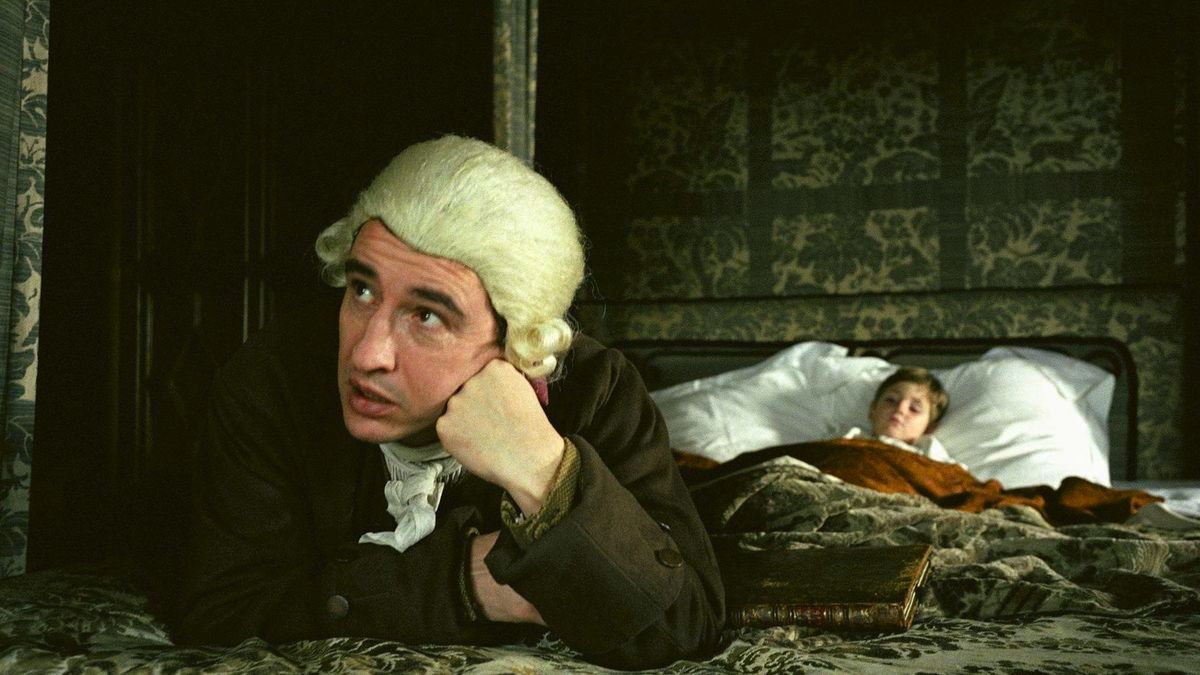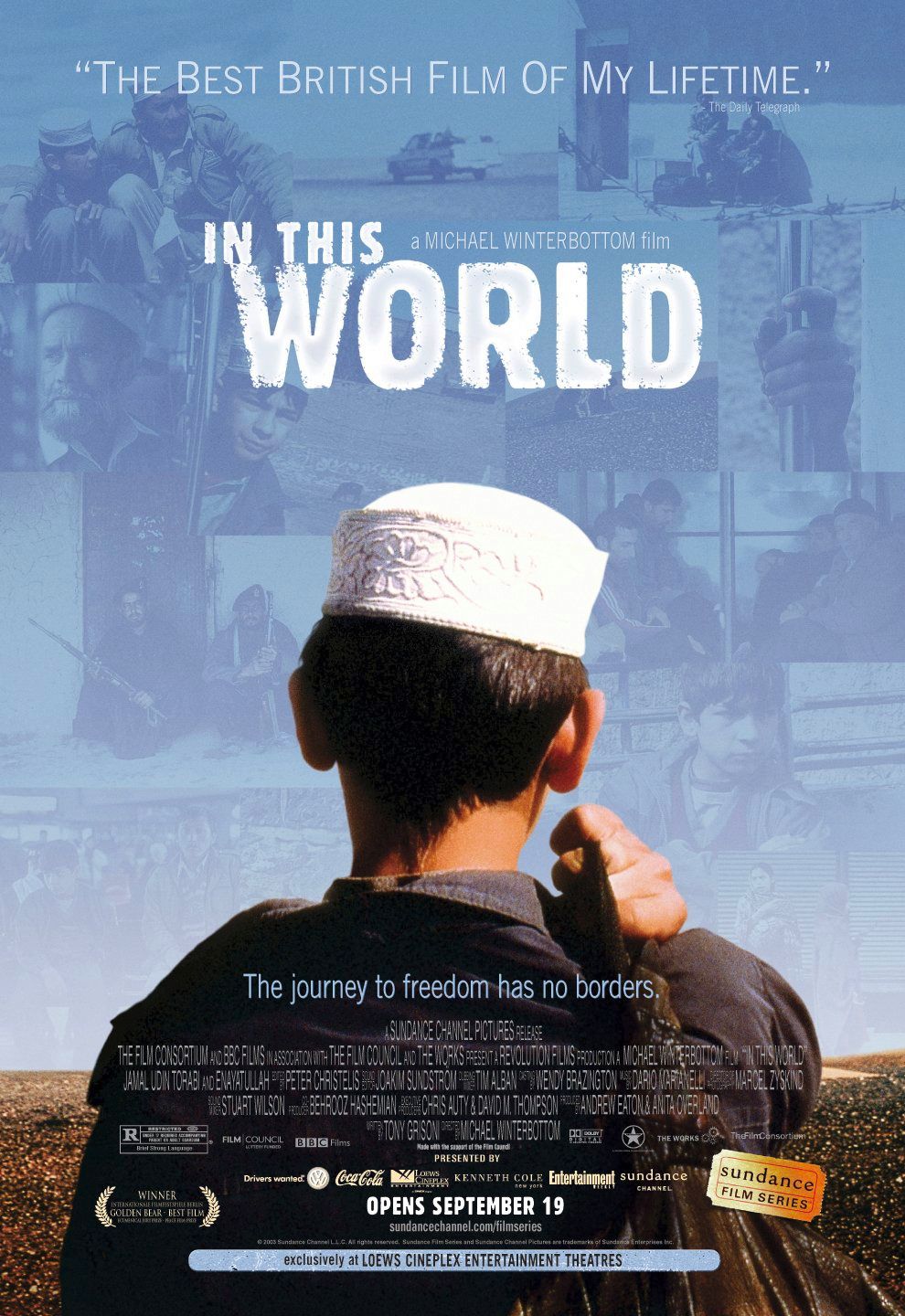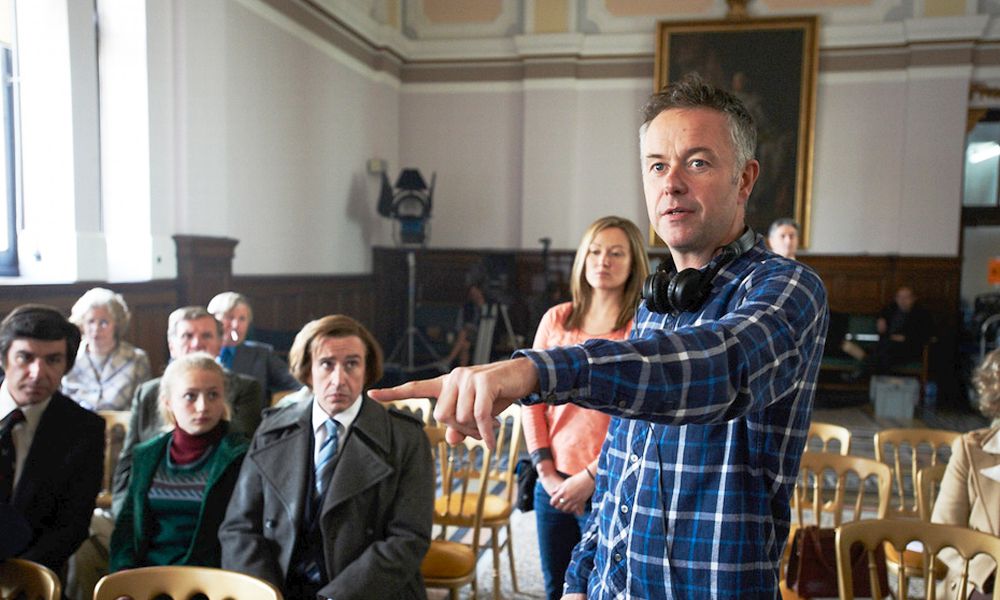"Quibbles aside, Britain is certainly lucky to have a director like Winterbottom, a genuine independent who works with autonomy, speed and at the edge of technology, politics and taste. Yet there isn't one of his films that wouldn't have benefited from more attention. It's tantalizing to think what he'd be capable of if he learned the art of patience." - Lloyd Hughes (The Rough Guide to Film, 2007)
Michael Winterbottom
Director / Screenwriter / Editor
(1961- ) Born March 29, Blackburn, Lancashire, England
(1961- ) Born March 29, Blackburn, Lancashire, England
Key Production Countries: UK, USA, France
Key Genres: Drama, Period Film, Comedy, Road Movie, Romantic Drama, Comedy Drama, Docudrama, Romance, Ensemble Film, Showbiz Comedy, Buddy Film
Key Collaborators: Andrew Eaton (Producer), Marcel Zyskind (Cinematographer), Steve Coogan (Leading Actor), Rob Brydon (Leading Actor), Frank Cottrell Boyce (Screenwriter), Trevor Waite (Editor), Melissa Parmenter (Producer), Mags Arnold (Editor), Mark Tildesley (Production Designer), Claire Keelan (Character Actress), Peter Christelis (Editor), Marta Barrio (Leading Character Actress)
Key Genres: Drama, Period Film, Comedy, Road Movie, Romantic Drama, Comedy Drama, Docudrama, Romance, Ensemble Film, Showbiz Comedy, Buddy Film
Key Collaborators: Andrew Eaton (Producer), Marcel Zyskind (Cinematographer), Steve Coogan (Leading Actor), Rob Brydon (Leading Actor), Frank Cottrell Boyce (Screenwriter), Trevor Waite (Editor), Melissa Parmenter (Producer), Mags Arnold (Editor), Mark Tildesley (Production Designer), Claire Keelan (Character Actress), Peter Christelis (Editor), Marta Barrio (Leading Character Actress)
"Winterbottom has come out of British television, full of ideas but blessed with practical need and an urge to tell different stories. Let the unity of character settle in as it may. But it seems to me, already, that Winterbottom does have a theme: that of lost souls who are putting on a busy and ingenious display of being safe and sound. He is working in the mainstream, and he may have no higher urge than to be versatile and entertaining. I will settle for that." - David Thomson (The New Biographical Dictionary of Film, 2002)
"Visionary director who got his start in British TV as director of two documentaries focusing on the life and career of filmmaker Ingmar Bergman… He is known to be a director who often employs a fairly loose style when making a film, giving it a raw, somewhat documentary feel." - The Film Encyclopedia, 2012

Tristram Shandy: A Cock and Bull Story (2005)
"Michael Winterbottom is one of the most impressive talents to have emerged from contemporary British cinema… Winterbottom is a remarkably prolific film-maker, with eleven features completed in the same number of years. The range of subjects has been highly diverse, incorporating genre elements, literary adaptation and stories torn from the headlines. His films often combine realism with an experimental aesthetic which mirrors his passion for European art cinema giants like Fassbinder and Fellini." - Robert Shail (British Film Directors: A Critical Guide, 2007)
"Roughly speaking, Winterbottom’s films can be sorted into four overlapping categories. There are the mainstream comedies, many of which star Steve Coogan as either a controversial figure from recent history or some version of himself. There are the literary adaptations, frequently of works by Thomas Hardy, though often transplanted to another time or place. There are the political films, which can either be drama, documentary or some combination of the two, and tend to explore themes that are still very much alive in the public discussion. And there are the character films: small-scale, inward-looking stories about families, sex and love." - Tom Huddleston (BFI, 2020)
The diversity and often confounding variety of Michael Winterbottom's projects are in some sense a throwback to Hollywood's contract days, when a director was treated as little more than a hired hand and was forced to make the most of the material given to him. However, the comparison ends when you account for Winterbottom's risky subject matter and apparent aversion to repetition and conformity… Frustratingly, for fans of the auteur theory, few of Winterbottom's films have much in common thematically or stylistically, besides the fact that each has been generally well accomplished in its own right." - Joshua Klein (501 Movie Directors, 2007)
"Winterbottom’s skilful mixing of narrational modes is the most distinctive feature of his approach to filmmaking. His juxtaposition of different techniques and effects sometimes results in a synthesis of opposing elements and at other times lays bare their differences. Several interrelated rhetorical oppositions thus become apparent. These might be seen to include documentary/fiction, realism/stylisation, narrative/non-narrative, history/myth, heritage/modernity and pleasure/discomfort, amongst others. In refusing to fully reconcile these oppositions, he persistently unveils the mechanics of the filmmaking process. In doing so he lays bare his own participation in that process as well as that of the viewer. For this reason, his films consistently challenge and provoke, encouraging more complex readings of their narratives, and of the ways in which we ourselves engage with them, than is customary for commercially released English-language feature films." - Deborah Allison (Senses of Cinema, 2005)
"After studying at Oxford, he worked as a television editor before moving into directing documentaries. His first feature film was Butterfly Kiss (1995). He is known for creating stark and edgy dramas, often filmed using hand-held cameras and improvisational techniques." - Chambers Film Factfinder, 2006
"A talented and intelligent British filmmaker of intense and often introspective relationship dramas." - The Hollywood.com Guide to Film Directors, 2004
"Winterbottom may be the most restlessly prolific British director alive: he’s made an impressive 14 films since the millennium, and one TV series, ranging from political dramas (A Mighty Heart) to futuristic love stories (Code 46) and period neo-noir (The Killer Inside Me)." - Tim Robey (The Telegraph, 2013)
"I don't particularly like the idea that there's an arc to the story and that therefore in this scene you have to convey this bit of information or emotion. I like more the feeling that, of course, there is a shape to the story, but that each scene should feel right, should be true at that moment, and that gradually you accumulate these moments of truth until you get enough of them together that it becomes a story that's interesting." - Michael Winterbottom
Selected Filmography
{{row.titlelong}}
GF Greatest Films ranking (★ Top 1000 ● Top 2500)
21C 21st Century ranking (☆ Top 1000)
T TSPDT N 1,000 Noir Films
21C 21st Century ranking (☆ Top 1000)
T TSPDT N 1,000 Noir Films
Michael Winterbottom / Favourite Films
Amarcord (1973) Federico Fellini, Breathless (1960) Jean-Luc Godard, Cries and Whispers (1972) Ingmar Bergman.
Source: BBC: Calling the Shots (2003)
Amarcord (1973) Federico Fellini, Breathless (1960) Jean-Luc Godard, Cries and Whispers (1972) Ingmar Bergman.
Source: BBC: Calling the Shots (2003)
Michael Winterbottom / Fan Club
Leonard Maltin, Catherine Bray, Jason Wood, Michael Atkinson, Wendy Mitchell, Peter Labuza, Sam Adams, Thomas Caldwell, Sheri Linden, Cynthia Fuchs, Saul Austerlitz, Stephen Garrett.
Leonard Maltin, Catherine Bray, Jason Wood, Michael Atkinson, Wendy Mitchell, Peter Labuza, Sam Adams, Thomas Caldwell, Sheri Linden, Cynthia Fuchs, Saul Austerlitz, Stephen Garrett.
"Fan Club"
These film critics/filmmakers have, on multiple occasions, selected this director’s work within film ballots/lists that they have submitted.
These film critics/filmmakers have, on multiple occasions, selected this director’s work within film ballots/lists that they have submitted.


